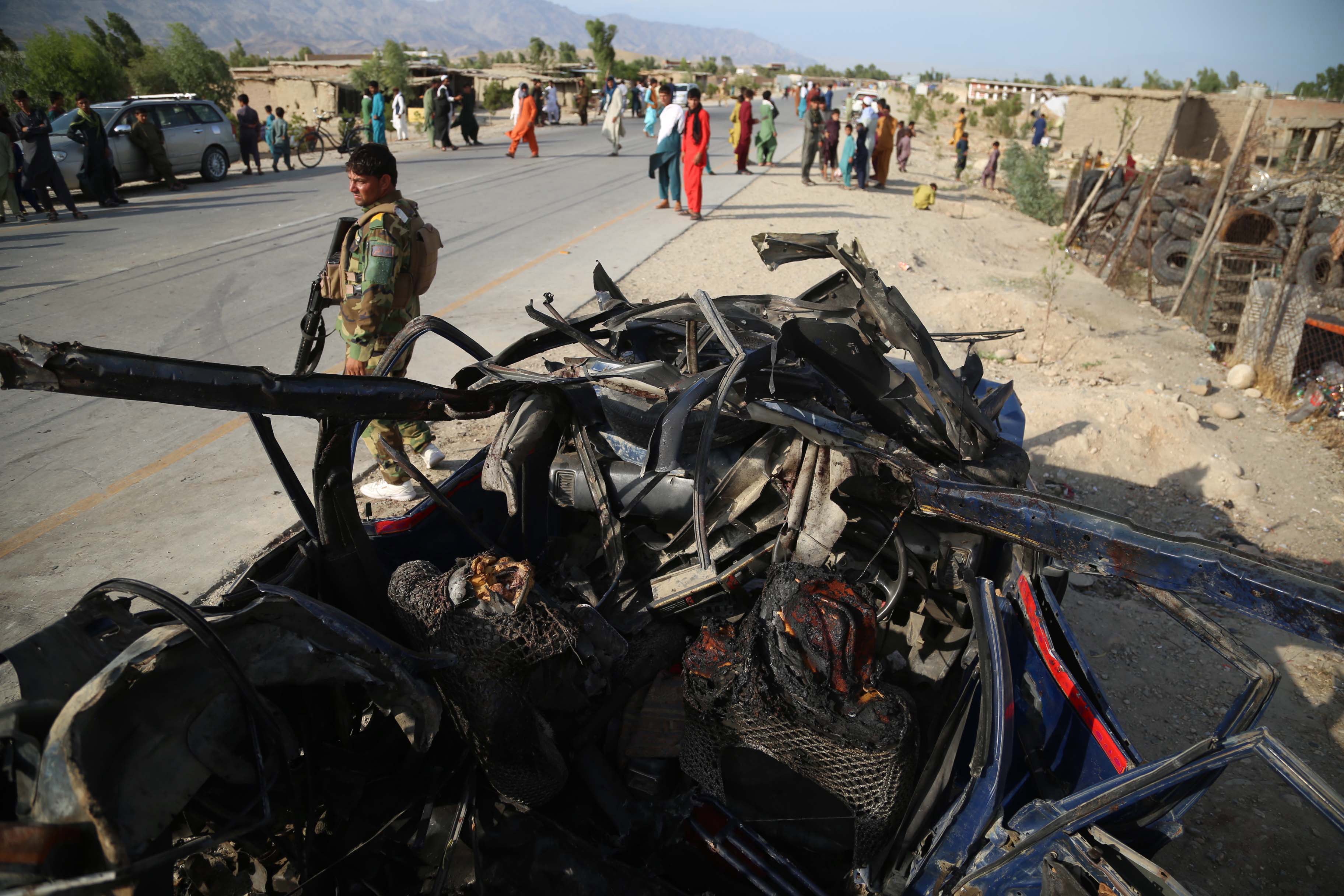Afghanistan peace talks falter over future government arrangements
Talks are set to continue in Qatar next week

Talks to end the Afghan conflict are in danger of stalling because the Taliban are demanding that the Kabul government agree to terms which would mean surrendering power to the Islamist group, according to senior diplomatic sources.
Delegations from the two sides ended 48 hours of negotiation in Qatar with a joint statement at the weekend saying they will meet again next week to continue until a settlement is reached.
The Taliban’s ‘Supreme Leader’ Haibatullah Akhundzada maintained ahead of the meeting that “the Islamic emirate strenuously favours a political settlement”. But, at the same time, the Islamists has continued their offensive to capture territory, and carry out bomb attacks.
There is a broad consensus among the Afghan government and its international supporters that the Taliban should become part of the country’s political process, with power-sharing or forming the government if elected.
But, Afghan officials, as well as a number of Western diplomats, maintain that the Islamists and their backers in the Pakistani military and intelligence services, believe a military victory can be achieved and do not want the momentum of advance halted.
A ceasefire now, followed by an election, offers no guarantee that the Talibs will achieve power. The Kabul government claims that polling shows support for the Taliban hovers around 17 per cent in large parts of the country.
“We are a republic, an Islamic republic. They want an emirate. We want the next government to be elected by the people, they want it appointed by a small group of their own people, we believe in equality for women, they don’t: these are obvious huge differences,” said a senior Afghan official.
“The Taliban say the values of the republic are not Islamic enough. We are prepared to discuss these matters with them, with religious scholars taking part. But the Taliban are fundamentalists, to them no one else can be as Muslim as they are.”
A number of Afghan officials and Western diplomats hold that the Talibs will not start talking seriously until there is a military stalemate - the time when they are no longer certain they can win the conflict.
The situation on the ground appears to shift on a weekly basis. The Talibs have captured around 210 of the country’s 420 district centres, but some territory has also been won back by Afghan forces and government and allied militias.
Meanwhile, say Afghan officials, despite the fierce fighting the casualty numbers among government forces have been relatively low and tactics are being adjusted to cope with the rushed departure of western forces.
One problem which has arisen, say American and British commanders, is that Western mentors with Afghan army units and Afghan Special Forces worked closely together, often without the Afghan chain of command being too involved.
“The speed at which our allies pulled out meant that there is a void, this could have been managed better,” said an Afghan official.
“But we are strengthening our chain of command which will take a few months. The Taliban are also changing the way they fight, less guerrilla warfare, more conventional. They are much more in the open, guarding their territory for example.”
The Afghan government cannot, however, depend on Western air support, a key part of their military campaign, to exploit the Taliban vulnerabilities with Western aircraft being pulled out of bases in the country.
The US, Britain and allies are considering the option of “over the horizon” air support from other countries. But a senior British military commander acknowledged that air support will not be as fast as ‘in-country’ with flights coming from as far away as Diego Garcia. Some flights will have to overfly Pakistan and, Afghan officials hold, the Pakistanis will tip-off the Taliban.
The Afghans also blame the Pakistani military for planning current operations which had concentrated on the north and west of the country rather than in their traditional southern stronghold. The aim appears to be to weaken Tajik, Uzbek and Hazara communities, historically opposed to the Talibs, in their home areas while surrounding and cutting-off Kabul.
General Mark Milley, Chairman of the US Joint Chiefs of Staff, warned that there was a “possibility of a complete Taliban takeover” with the “strategic momentum” with the Islamists.
He acknowledged, however, that there could be a “number of other scenarios. This is going to be a test now of the will and leadership of the Afghan people, the Afghan security forces and the government of Afghanistan. I don’t think the end game is yet written”.
Join our commenting forum
Join thought-provoking conversations, follow other Independent readers and see their replies
Comments
Bookmark popover
Removed from bookmarks